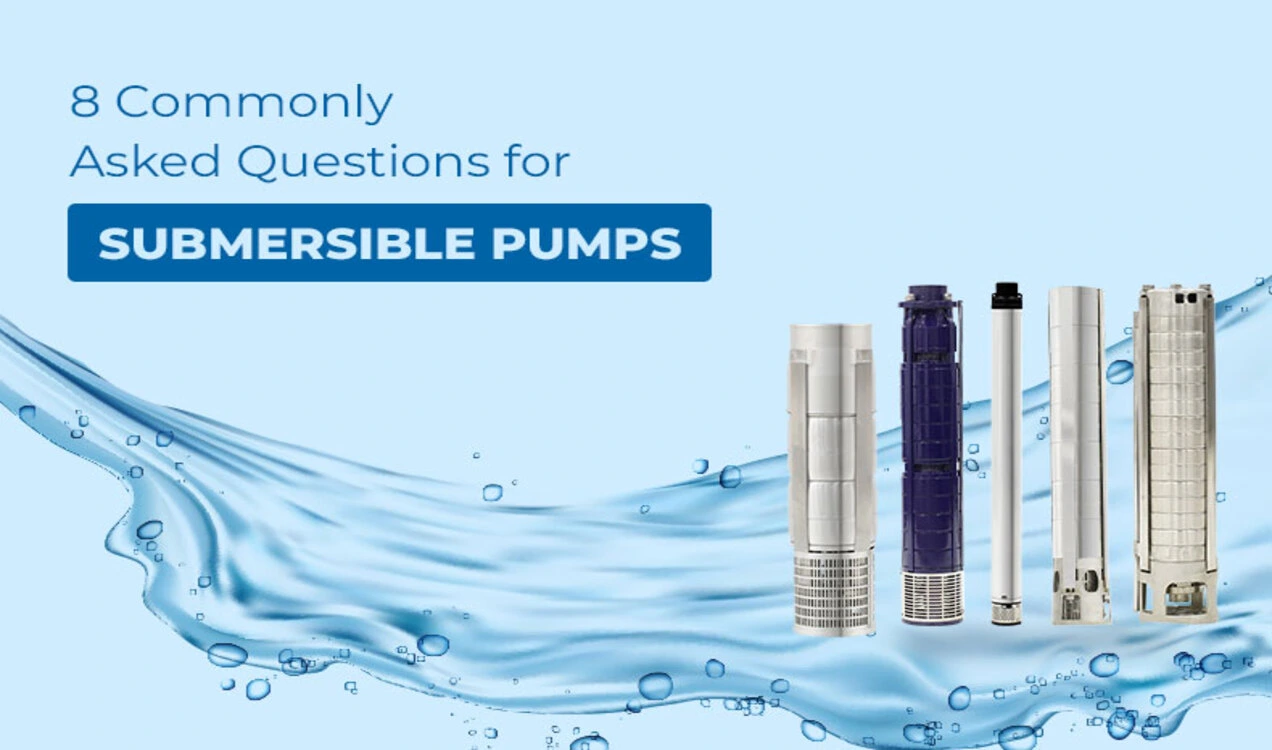Industrial equipment endures chemical corrosion and high temperatures leading to wear and tear. Subsequently, demand for the equipment must be carefully weighed before making a purchase for higher efficiency, lower maintenance, and long-term cost savings.
8 Essential Questions to Ask Before Purchasing a Submersible Pump
Q1. How safe are Submersible Pumps?
The electric cables attached to the motor of the submersible pump are sealed hence they can be safely used in fluid medium or water. The pump and motor are tethered by a strong mechanical design and cannot be easily separated. Hence, if you have accurately measured the bore well diameter, finding a matching pump size, and installing it is easy and safe.
Q2. How to choose the Best Submersible Pump?
Analyze future requirements before purchasing the submersible pump; it will save significant money and time in energy bills and downtime, respectively. For instance, evaluate the purpose of the pump – will it be used in a pond or for a watering hole that feeds a herd of dairy cows on your property? Perhaps, you need a heavy-duty pump to work efficiently in the wastewater industry? Since the durability of the pump depends on its run time hence installing a massive pump will be a waste of your money.
Understand the functioning of the motor to evaluate its effectiveness. Premium quality pumps work efficiently below their load limit. The full load amperage (FLA) rating is the best indicator to know how much workload the motor shaft can achieve. The impeller attached to the submersible pump must also be considered.
The pump head is another factor to evaluate. It is a measure of pressure a submersible pump can build. It’s measured from the water/liquid surface that needs to be pumped.
Q3. What are Submersible Water Pumps ideally used for?
Submersible pumps are either used for bore well or open-well purposes.
For bore wells, the equipment is used to pump water from 50 feet below the ground. Currently, these submersible pumps are used for depths 1500 feet below the ground. However, as the water table is rapidly decreasing, manufacturers are designing pumps for greater depths that match the size of the bore, such as 3”, 4”,5”,6”,7”, or 8”.
Submersible cutter pumps are used for sewage treatment plants, drilling, water well and deep well dewatering. Other uses include residential apartments, industrial and municipal water circulation, commercial complexes, and irrigation systems.
Q4. Which Submersible Water Pump do I need for my flooded Basement?
An understanding of BS8102:2009 with adequate structural waterproofing knowledge is essential to make a purchase for the basement. For instance, you should know how the water source flows through soil and interacts with your building. Usually, the selection of sump chambers is based on the expected water flow, soil structure, and area of the basement slab.
A sump pump removes accumulated water in a water collection system. A pump station refers to the pump chamber, internal pipe valves and working. It should have two sump pumps if used for groundwater purposes.
Q5. What is an Electrical Submersible Pump?
An electric motor is used in a submersible pump that can be oil or water-cooled. This pump can be any type, such as AC, DC, PMSM, Brushless DC, and/or SynRM.
Q6. Can I install an Electric Submersible Water Pump by myself without any skills?
Although submersible pumps are safely designed to prevent electrical shocks. For instance, electrical wiring and the unit’s working parts are encased in cast-iron, cables sealed and shielded by rubber. However, this encasing cannot guarantee waterless contact of the submersible pump.
Hence, when installing the pump in your pond, water garden, or swimming pool, ensure that the pump is switched off and not connected with an electrical outlet; else you can be electrocuted. Always, take precautions, like wearing rubber boots and gloves, and the pump switched off when entering your pool for routine maintenance.
Q7. What is the average lifespan of a Submersible Water Pump?
The life expectancy of the submersible pump depends on different factors, such as quality, electrical supply/voltage of the pump, and for how many hours it will be used. On average, for a residential 3-wire submersible pump, the shelf-life is 10-15 years, and for a 2-wire pump, it’s 8-13 years.
Q8. Can Submersible Pumps run continuously?
You can continuously operate a submersible pump but be prepared to compromise on its shelf-life. Hence for better performance and higher durability, the submersible pump should operate intermittently.
You can also read this blog: How Long Can A Submersible Pump Run Continuously?
Final Thoughts
We hope these answers will help you make an informed purchase decision that would serve your purpose well for a minimum of 10 years.
Find more information on pumps at Unnati Pumps, for further inquiry click here.


